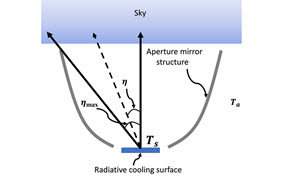2016 SPIE Dennis Gabor Award
Ting-Chung Poon receives Gabor Award.
SPIE Fellow Ting-Chung Poon, a professor of electrical and computer engineering at Virginia Polytechnic Institute and State University (USA), received the 2016 SPIE Dennis Gabor Award for his pioneering contributions to optical scanning holography (OSH).
SPIE presents the Dennis Gabor Award every year to recognize outstanding accomplishments in diffractive wavefront technologies, especially those that further the development of holography and metrology applications.

From his 2004 patent for multicolor electronic holography and 3D-image-projection system, with its advantages over traditional photographic holography, to his 2014 textbook Introduction to Modern Digital Holography with MATLAB, Poon has contributed significantly to the development of novel digital holography and 3D imaging.
In the early 1980s, Poon pioneered research in OSH, a novel digital-holographic recording technique using a single-pixel optical detector. This technique allows three-dimensional information of an object to be extracted by a single two-dimensional optical-heterodyne scan. One of the most important contributions from OSH has been its combination with fluorescence techniques, leading to the first 3D holographic fluorescence microscope.
Poon has also shown that OSH can be used in applications such as 3D cryptography, 3D optical remote sensing, and 3D holographic displays.
“Professor Poon is a tireless and unique advocate of holographic imaging and, through his textbooks and instruction at Virginia Tech, has played a central role in the education of the next generation,” said David Brady, professor of electrical and computer engineering at Duke University (USA).
Brady also remarked that Poon’s books are noteworthy for the central role they accord to computational methods. While physical optics instruction has long emphasized analytic analysis, physical optics research has been a primarily computational field for the past quarter century. “Professor Poon’s role in bringing instruction in line with practice has been exemplary,” Brady said.
Poon received the award in April at SPIE Defense + Commercial Sensing in Baltimore.
For nearly six decades, SPIE has presented annual awards to recognize significant achievements and contributions in advancing the science of light.
Look for other stories about award recipients for 2016 in this issue and the October edition of SPIE Professional.
Nominations for the 2017 SPIE awards were due 1 June and will be announced in January 2017 or earlier.
More information: spie.org/awards.
- Have a question or comment about this article? Write to us at spieprofessional@spie.org.
- To receive a print copy of SPIE Professional, the SPIE member magazine, become an SPIE member.



